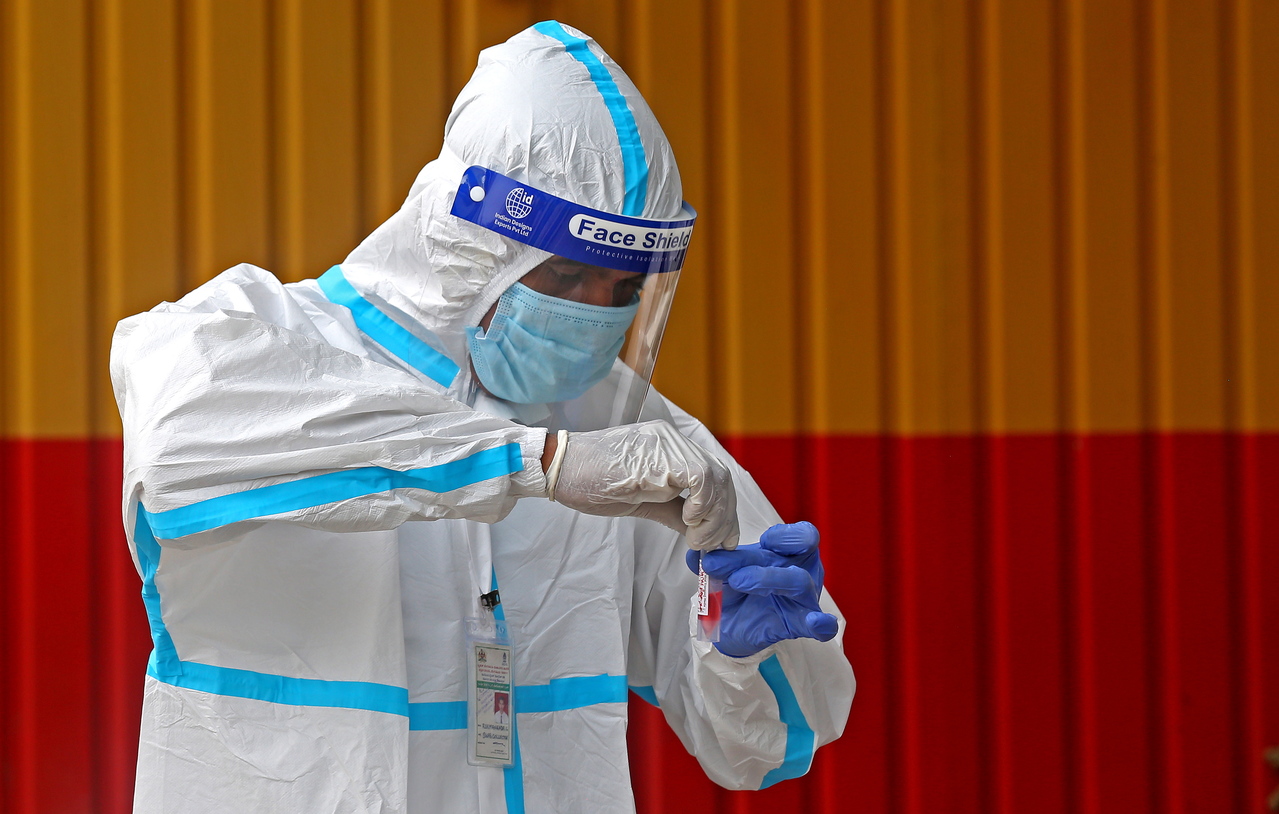Omicron Covid-19 cases 'mostly mild', initial findings show
Sign up now: Get ST's newsletters delivered to your inbox

Early data suggested that Omicron is more infectious than Delta, but there are now better ways to prevent and treat the disease.
PHOTO: EPA-EFE
The EU medicines watchdog said the Omicron variant of the coronavirus so far appears to cause milder disease, as early hospital data released from South Africa on Friday (Dec 10) appeared to corroborate its findings.
The European Medicines Agency's (EMA) pronouncement on Thursday echoed that of the World Health Organisation (WHO) and the US Centres for Disease Control and Prevention (CDC), both of which separately shared preliminary findings this week that people infected with the Omicron variant tend to suffer less severe symptoms than those who caught the Delta strain.
"Cases appear to be mostly mild," Dr Marco Cavaleri, EMA's head of biological health threats and vaccines strategy, said.
"However, we need to gather more evidence to determine whether the spectrum of disease severity caused by Omicron is different from that of all the variants that have been circulating so far."
Dr Cavaleri said early data suggested that Omicron is more infectious than Delta, but stressed that there are now also better ways to prevent and treat the disease than there were last year.
He added that it was still too early to comment on how well the current range of Covid-19 vaccines work against the new variant.
The highly mutated Omicron variant, first reported in South Africa last month, has sparked widespread concern that it could be more contagious, cause more severe illness, or be better at evading vaccines than previous strains.
But preliminary findings released on Friday showed that South Africa's hospitalisations from the Omicron variant were rising at a slower rate than the country's surging number of infections.
Cases of severe disease also appeared to be significantly lower than in the country's previous waves of the pandemic, and there has been only a small increase in the number of deaths.
The Tshwane metropolitan area - which includes Pretoria where some of the first Omicron cases were reported - registered 1,633 Covid-19 hospitalisations between Nov 14 and Dec 8, according to the early data from South Africa's National Institute for Communicable Diseases (NICD).
Of those patients, 31 per cent were severe cases - needing oxygen or mechanical ventilation - compared with 66 per cent early in the second wave, and 67 per cent in the early weeks of the first.
The NICD warned, however, that the study was yet to be peer-reviewed, and that severe cases could still rise in the coming days.
"It may take a few weeks for hospitalisation outcomes to accumulate," the agency said in its report.
The report did not specify if the patients studied had been vaccinated, so it was unclear if and to what extent vaccine coverage might have helped to keep their symptoms mild.
South Africa on Thursday reported 22,391 new Covid-19 cases, a fresh record for its current wave of infections, but only 22 deaths.
The WHO's Africa branch said that new coronavirus infections in the region had almost doubled over the past week, to 107,000, as the Omicron variant "is reaching more countries in Africa". The biggest surge - 140 per cent on average - was in the south of the continent.
Elsewhere, Britain, Germany, France and the United States are also grappling with a winter wave of infections that has seen some governments hastily tighten curbs to halt transmission.
In Britain, fresh restrictions kicked in on Friday, with face masks mandated in indoor public spaces in England again. From next week, vaccination passes will also be required at nightclubs and large events, and residents have been urged to work from home.
Germany and Switzerland are considering greater contact restrictions, while France is planning to beef up its vaccination programme by administering 20 million booster shots by Christmas.


